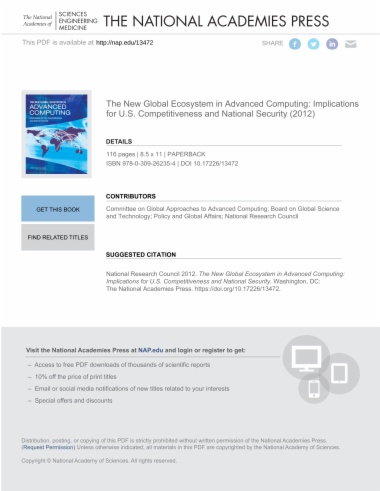

Computing and information and communications technology (ICT) has dramatically changed how we work and live, has had profound effects on nearly every sector of society, has transformed whole industries, and is a key component of U.S. global leadership. A fundamental driver of advances in computing and ICT has been the fact that the single-processor performance has, until recently, been steadily and dramatically increasing year over years, based on a combination of architectural techniques, semiconductor advances, and software improvements. Users, developers, and innovators were able to depend on those increases, translating that performance into numerous technological innovations and creating successive generations of ever more rich and diverse products, software services, and applications that had profound effects across all sectors of society. However, we can no longer depend on those extraordinary advances in single-processor performance continuing. This slowdown in the growth of single-processor computing performance has its roots in fundamental physics and engineering constraints—multiple technological barriers have converged to pose deep research challenges, and the consequences of this shift are deep and profound for computing and for the sectors of the economy that depend on and assume, implicitly or explicitly, ever-increasing performance. From a technology standpoint, these challenges have led to heterogeneous multicore chips and a shift to alternate innovation axes that include, but are not limited to, improving chip performance, mobile devices, and cloud services. As these technical shifts reshape the computing industry, with global consequences, the United States must be prepared to exploit new opportunities and to deal with technical challenges. The New Global Ecosystem in Advanced Computing: Implications for U.S. Competitiveness and National Security outlines the technical challenges, describe the global research landscape, and explore implications for competition and national security.